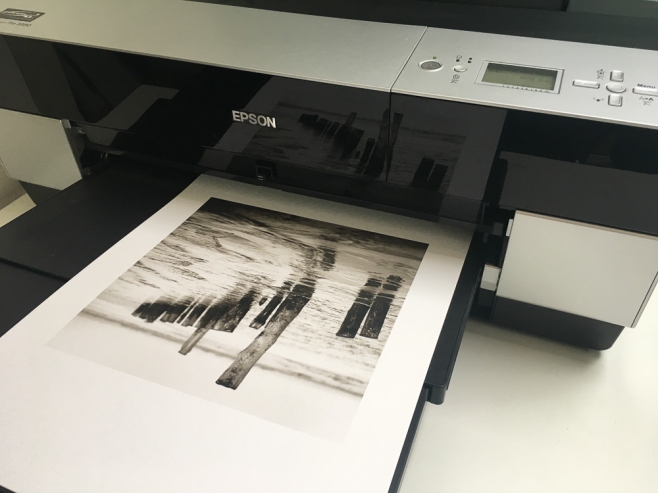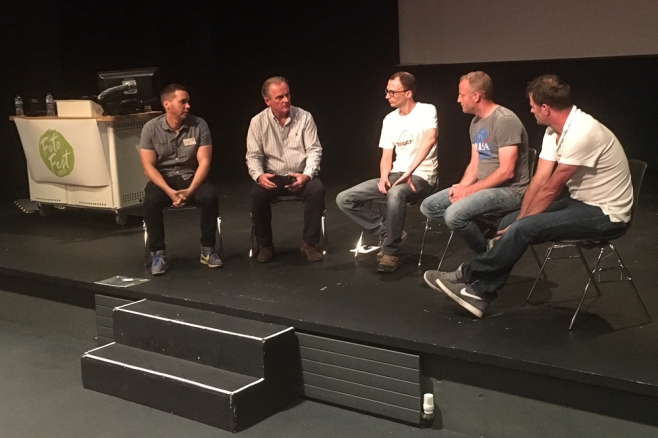The future of photography and in particular the print – discuss.

This could be an exam question or even a topic for a university thesis, or more simply a discussion between a group of photographers over a drink in the pub one evening.
On Sunday I attended Foto Fest 2017 at Bath University, an event hosted by Fotospeed – a company providing a wide variety of photographic papers, some of which I use for my own images. There were four excellent professional photographers talking about their work (Martin Hartley, Paul Sanders, Ben Hall and Colin Prior) all of which were truly inspiring.
At the end of the afternoon Sam Gregory of Togcast hosted a question and answer session with the four speakers giving their views on various topics. The subject of this entry was one of the topics raised by Sam. There wasn’t time to do the question justice, let alone involve the audience. I am also aware it’s a hotly debated subject in photography circles. As no one can really predict the future, I thought I would pitch in with my own personal view. It’s probably an opinion shared by others but I hope you will read on.

Let me start by saying I love printing – it can be costly and it’s far more difficult to share the results – in fact it’s the complete opposite of uploading and sharing images on the web. Feedback on prints is sparse to say the least. The camera club judge is one source who might see a few and comment; family and maybe a few close friends are another; a few may be published in a magazine and lastly perhaps some will be seen in a public exhibition. It’s hardly instant feedback in the form of likes and shares is it? But does it matter? In my view no it doesn’t and here is why.
Firstly I take photos primarily to please me. I enjoy the whole process and if the end results give pleasure to others then naturally I am delighted. Although I am very grateful for ‘likes’ and ‘comments’ they are very transitory, and will all be lost in the vast sands of social media in no time at all. Come to that any images on the web, or on a hard drive will probably be lost over time. A hard drive doesn’t survive forever and the software required to read the images will also pass its sell by date. What happens then and what is the legacy?
For those who take pictures of their last meal or latest purchase to share with their friends on Instagram it probably doesn’t matter. However what will happen to more serious work and family photos in 10, 20 or 50 years time? Personally I would like to think others in my family might like to look at some of my work in years to come. They will not bother to find the images on the web; even if that is possible, but they might like to turn a few pages in an album and quietly enjoy viewing what I consider to be my best work with future generations.
My wife is very keen on family history. She has fortunately been left many photos of long lost members of her family. Sadly many are not annotated, so deciding ‘who is who’ and where it was taken is not that easy, but at least the hard tangible prints are in her hand to research.
You can probably guess where this train of thought is leading. I believe that printing and storing your work is important. My intention is to print and collate all my favourite images and either make books or better still photo albums of actual prints. At worst they may be stored away in boxes, but hopefully in years to come they may sit on a bookshelf and occasionally be opened and see the light of day. I hope so anyway.
To start this process I have decided to make a bespoke album of my ‘Chichester Harbour’ project which I have now given a title – ‘Still by the Water’. I plan to produce the album in time for the exhibition in November so I can show other images which are not framed and displayed. I have made some enquiries and will share my findings on this blog at a future date.
Now back to the original question. Given the sheer quantity of photos taken every day and the fact that only a tiny fraction will ever be printed, might there be a realisation in time to come that print has true longevity and as a result more prints will be made? Or will technology change, provide a solution, and make prints truly redundant? I hope not – I like the feel and look of a photograph in my hand. Book sales and I mean paper versions are on the up, so are the sales of vinyl records. Perhaps the same will happen with photographs. I can only do my bit but I urge you to consider the longevity of your work. Someone in the long and distant future might be rather pleased you did.
4 Responses to “The future of photography and in particular the print – discuss.”
Great article. Prints and digital both have a role. To truly appreciate a photograph it has to be looked at over time – either in a book on in a picture frame.
LikeLiked by 2 people
Thank you Emma. I agree that digital and prints have their place, and there is no question that a photo can be better enjoyed as a print. It’s just a shame I don’t have more wall space!!
LikeLike
Perhaps I had better stress that this is the expression of a preference not the making of a judgement!
For me, the whole process of making an image is the gestation period until a print is made. Alright, I realize that in many cases the gestation time of many of my images has far exceeded that of the elephant, but when I occasionally skim through the digital form of my images I, sometimes, like some quite well but, they remain “separate” from me.
I believe that the tactile experience of holding a print somehow brings you into closer personal contact with the subject. When I hold photographs of my, long gone, parents I experience something more tangible than I do when watching bits of newsreel footage (yes I go back that far) of my father.
Leaving prints for future family members/others, will, I think, be a service to them.
LikeLiked by 1 person
Thanks for your comment and observations and I wholeheartedly agree with your sentiments. I think images do take time to mature I can also empathise with the ‘disconnect’ of screen images as opposed to a print in the hand. A very valid point and so often I do not feel a photo is truly finished until it is printed. Thanks again. Alan
LikeLike